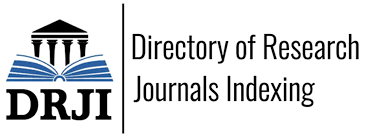Happiness, virtue and wisdom: elements of ancient Greek philosophy in Islamic advice literature
DOI:
https://doi.org/10.18326/ijoresh.v3i1.53-75Keywords:
Happiness, Virtue, Wisdom, Greek philosophy, Islamic political ethics, Islamic advice literatureAbstract
This essay examines the profound influence of ancient Greek philosophy on Islamic advice literature, particularly in political ethics and governance. It aims to trace the integration of Greek philosophical ideas into Islamic advice literature, focusing on four key areas: Plato's theory of happiness, Aristotle's virtue ethics, the concept of "the three governances," and the ideal ruler-advisor relationship. Employing a meticulous analysis of a dozen Islamic sources from the tenth to the fifteenth centuries, it uncovers the extent of Greek thought's impact. Findings reveal that Islamic political elites, including philosophers, secretaries, religious scholars, and historians, adopted and adapted Greek philosophical theories to align with Islamic political goals and strategies. Plato's notions of happiness through just rule and the pursuit of knowledge and justice are echoed in the works of Islamic luminaries. Aristotle's virtue ethics, emphasizing prudence, temperance, courage, and justice, are seamlessly woven into Islamic governance literature. The concept of "the three governances" reflects Aristotelian governance principles, while Greek gnomology is used to validate political concepts especially the ideal ruler’s wisdom, showcasing the rhetorical power of invoking Greek authorities. The study concludes that Greek elements were frequently combined with Arabic, Persian, and other influences in Islamic advice literature, suggesting caution in interpreting Islamic political ethics through an exclusive lens. The research underscores the convergence of cross-cultural ideas and the Islamization of Greek philosophy to support political demands within a religious framework.
References
Al-Ghazālī, A. Ḥ. (1964). Ghazālī's Book of counsel for kings (Naṣīḥat al-mulūk). Translated by Frank Ronald Charles Bagley. London: Oxford University Press.
Al-Khayrbaytī, M. (1996). al-Durra al-gharrāʾ fī naṣīḥat al-salāṭīn wa-l-quḍāt wa-l-umarāʾ. Riyad: Maktabat Nizār Muṣṭafā al-Bāz.
Al-Maghribī, A. (1948). Kitāb fī l-siyāsa. Edited by Sāmī al-Dahhān. Damascus: al-Maʿhad al-Faransī li al-Dirāsāt al-ʿArabiyya.
Al-Māwardī, A. (1997). Durar al-sulūk fī siyāsat al-mulūk. Edited by Fuʾād ʿAbd al-Munʿim Aḥmad. Riyad: Dār al-Waṭan.
Al-Murādī, A. (2003). Kitāb al-Ishāra ilā adab al-imāra. Edited by Muḥammad Ḥasan Ismāʿīl and Aḥmad Farīd al-Mazyadī. Beirut: Dār al-Kutub al-ʿIlmiyya, 2003.
Al-Shayzarī, ʿA. N. (2003). al-Nahj al-maslūk fī siyāsat al-mulūk. Edited by Muḥammad Ḥasan Ismāʿīl and Aḥmad Farīd al-Mazyadī. Beirut: Dār al-Kutub al-ʿIlmiyya.
Al-Ṭurṭūshī, M. (1994). Sirāj al-mulūk. Edited by Muḥammad Fatḥī Abū Bakr. Cairo: al-Dār al-Miṣriyya al-Lubnāniyya.
Al-ʿUzayr, M. Ṭ. Ḥ. (2019). Mafhūm al-naṣīḥa fī l-Islām : al-munṭalaqāt wa-l-ahdāf. Beirut: Dār al-Kutub al-ʿIlmiyya.
Aristotle. (1984). The Complete Works of Aristotle. Ed. Jonathan Barnes. Princeton: Princeton University Press.
Forster, R. & Yavari, N. (ed.) (2015). Global Medieval: Mirrors for Princes Reconsidered. Cambridge: Harvard University Press.
Gannagé, E. (ed.) (2004). The Greek Strand in Islamic Political Thought: Proceedings of the Conference held at the Institute for Advanced Study, Princeton, 16-27 June 2003, special issue, Mélanges de l’Université Saint-Joseph 57 (2004).
Gutas, D. (1975). Greek Wisdom Literature in Arabic Translation: A Study of the Graeco-Arabic Gnomologia. New Haven: American Oriental Society.
Gutas, D. (1981). Classical Arabic Wisdom Literature: Nature and Scope. Journal of the American Oriental Society, 101 (1), 49–86.
Ibn al-Azraq, M (2008). Badāʾiʿ al-sulk fī ṭabāʾiʿ al-mulk. Edited by ʿAlī Sāmī al-Nashshār. Cairo: Dār al-Salām.
Ibn Riḍwān, ʿA. (1984). al-Shuhub al-lāmiʿa fī l-siyāsa al-nāfiʿa. Edited by ʿAlī Sāmī al-Nashshār. Casablanca: Dār al-Thaqāfa.
Isahak, A. (2010). Ibn al-Azraq's Political Thought: A Study of Badaʹiʻ al-sulk fi ṭabaʹiʻ al-mulk. Saarbrücken: VDM Verlag Dr. Müller.
Lambton, A. K. S. (1980). Theory and Practice in Medieval Persian Government. London: Variorum.
Lohlker, R. (2024). Der muslimische Herrscher. Politische Philosophie 5, 55-78.
London, J. A. (2011). The Circle of Justice. History of Political Thought, 32(3), 425-447.
Mahdī, M. S. (2001). Alfarabi and the Foundation of Islamic Political Philosophy. Chicago: The University of Chicago Press.
Marlow, L. (2013). Among Kings and Sages: Greek and Indian Wisdom in an Arabic Mirror for Princes. Arabica, 60, (1) 1-57.
Marlow, L. (2023). Medieval Muslim Mirrors for Princes: An Anthology of Arabic, Persian and Turkish Political Advice. Cambridge: Cambridge University Press.
Niẓām al-Mulk, A. (1893). Siasset Namèh. Traité de gouvernement, composé pour le sultan Melik-Châh. Edited and translated by Charles Schefer. Paris: Leroux.
Pseudo-al-Māwardī. (2016). The Naṣīḥat al-mulūk of Pseudo-Māwardī. Edited and translated by Louise Marlow. Edinburgh: Edinburgh University Press.
Plato. (2006). Laches. Protagoras. Meno. Euthydemus, With an English Translation by W. R. M. [Walter Rangeley Maitland]. Cambridge: Harvard University Press.
Sánchez, E. G. (1980). Ibn al-Azraq: Urŷūza sobre ciertas preferencias gastronómicas de los granadinos. Andalucía Islámica 1, 141–162.
Sibṭ Ibn al-Jawzī, Y. (1989). al-Jalīs al-ṣāliḥ wa-l-anīs al-nāṣiḥ. Edited by Fawwāz Ṣāliḥ Fawwāz. London: Riyāḍ al-Rayyis.
Tor, D. G. (2011). The Islamisation of Iranian Kingly Ideals in the Persianate Fürstenspiegel. Iran, 49 (1) 115–122.
Walzer, R. (1957). Al-Fārābī’s Theory of Prophecy and Divination. Journal of Hellenic Studies, 77 (1), 142–148.
Yavari, N. (2014). Advice for the Sultan: Prophetic Voices and Secular Politics in Medieval Islam. London: Hurst & Company.
Downloads
Published
How to Cite
Issue
Section
License
Copyright
Authors who publish with Indonesian Journal of Religion, Spirituality, and Humanity agree to the following terms:
- Authors retain copyright and grant the journal right of first publication with the work simultaneously licensed under a Creative Commons Attribution License (CC BY-SA 4.0)that allows others to share the work with an acknowledgement of the work's authorship and initial publication in this journal.
- Authors have the right to enter into separate, additional contractual arrangements for the non-exclusive distribution of the journal's published version of the work (e.g., post it to an institutional repository or publish it in a book), with an acknowledgment of its initial publication in this journal.
- Authors are permitted and encouraged to post their work online (e.g., in institutional repositories or on their website) prior to and during the submission process, as it can lead to productive exchanges, as well as earlier and greater citation of published work.
Licensing
This work is licensed under a Creative Commons Attribution-ShareAlike 4.0 International License.









